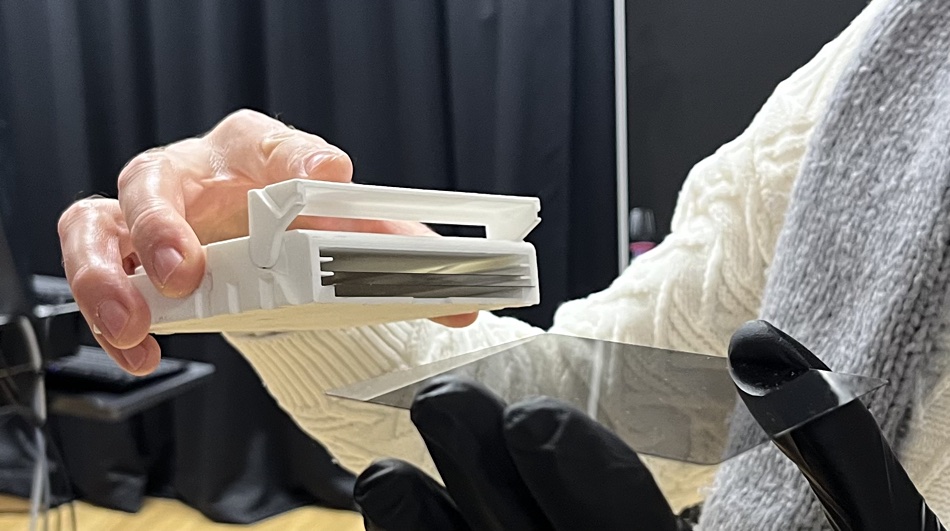Fast access all-flash array vendor Pure Storage has indicated an interest in long-term archival storage by investing in ceramic storage startup Cerabyte and gaining a board seat.
Cerabyte is developing archival ceramic-coated glass tablet storage with binary ones and zeros indicated by the presence or absence of femtosecond laser-punched pits in the ceramic layer. These are written as QR codes and read by scanning microscopy. The glass tablets are stored in a robotic library system, akin to a tape library. Unlike tape media, which needs replacing every decade or so, the data on these glass tablets is immutable, and the tablets can hold more data than a tape cartridge.
Pure is making a strategic investment in Cerabyte – the amount has not been disclosed – and John Colgrove, Founder and Chief Visionary Officer at Pure Storage, is joining Cerabyte’s board.

Colgrove said in a statement: “Pure’s investment in Cerabyte and joint partnership will allow us to offer our customers sustainable and immutable data storage solutions that are revolutionizing the industry. By disrupting the archival storage market, we are paving the way for longer lasting and easier to manage long-term storage.”
Cerabyte is based in Munich. It has developed a functioning end-to-end data prototype system and aims to build a commercial product. Cerabyte set up a US operation in 2023 and recruited Silicon Valley-based Steffen Helmold as director. Earlier this year it opened two US offices in Santa Clara, California, and Boulder, Colorado.
The US Cerabyte operation has landed a big fish in the shape of Pure Storage. Pure says of the move that it’s delivering the industry’s best platform to store, manage, and protect the world’s data. This strategic investment in Cerabyte will enable the company to extend this mission further. Cerabyte claims its tech can store all data virtually forever and preserve today’s digital records for future use through the use of its ceramic data storage.

John Monroe, Chief Analyst at Furthur Market Research, said: “The complex global needs of zettabyte-scale archival storage have been poorly served with expensive solutions that consume an inordinate share of the world’s available energy. The storage industry is ripe for transformative disruption. In concert and conjunction with tape, new technologies such as Cerabyte’s will be required to provide viable and cost-effective solutions to enterprise customers’ crucial challenges with the security, immutability and sustainability (SIS) of their vital data.”

Cerabyte CEO Christian Pflaum said: “As the industry is heading towards the Yottabyte Era, sustainable data storage – which eliminates the need for data migration and thereby scales down the energy footprint and TCO – will be critical to harness the data tsunami ahead. We are thrilled to partner with Pure Storage to commercialize ceramic data storage and welcome John to our Board of Directors.”
The whole thrust of Pure’s Cerabyte involvement is to have a glass tablet-based archival storage library that it can sell to its customers, thus disrupting the archive tape-library market. This is a radical move, and would enable Pure to fulfill all the storage hardware system needs of its customers, from real time (FlashArray), near real-time and near line (FlashBlade) to long-term archives. We are looking at a multi-year effort, we think, with a possible demonstration product in 2026 or so. It’s great news for Cerabyte and will prompt tape library system vendors like IBM, Quantum and SpectraLogic to take stock of their tape-based technology and ponder a media evolution.








